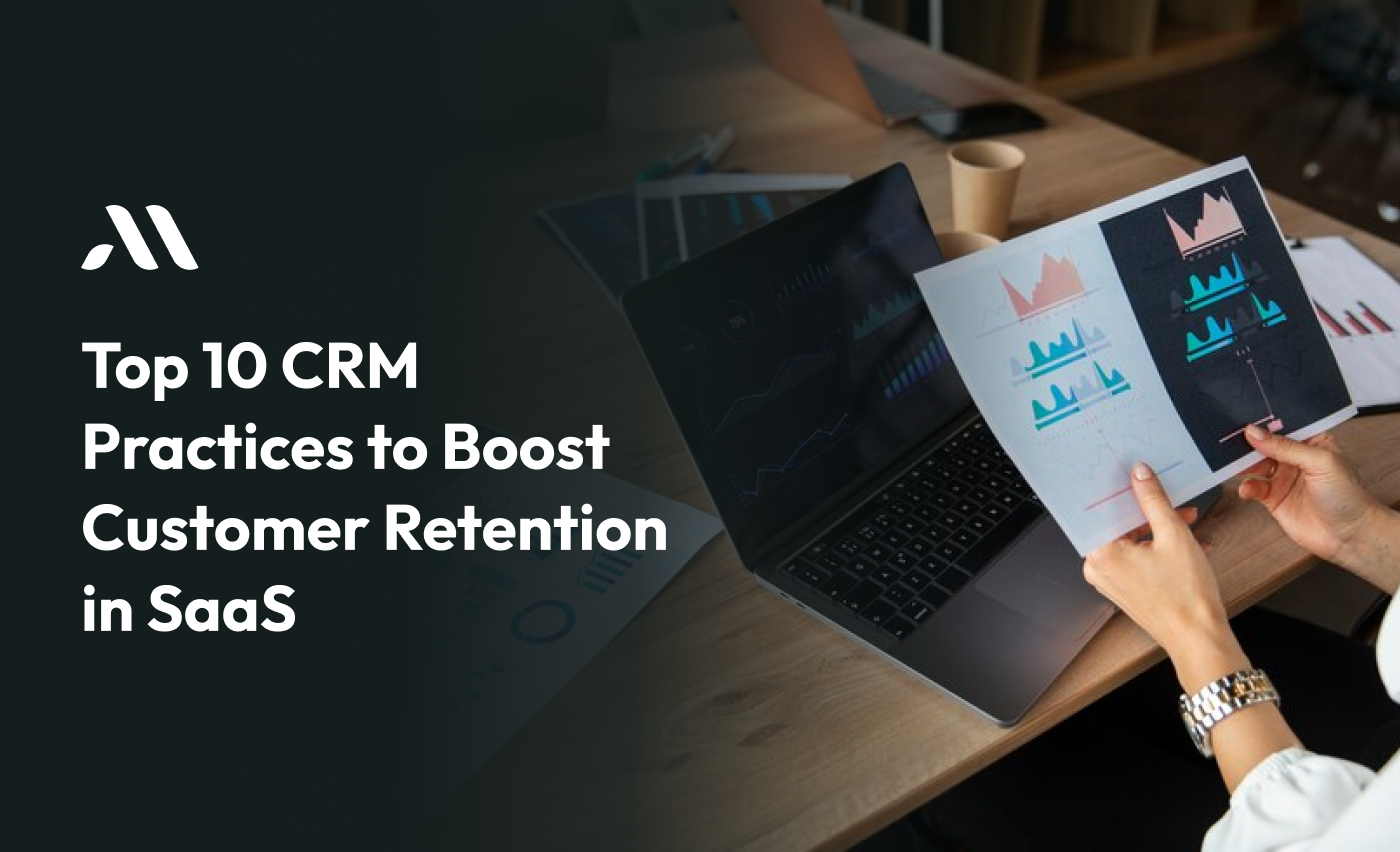Introduction to CRM Practices to Boost Customer Retention in SaaS
Customer retention is crucial for any business, but it's especially important for SaaS (Software as a Service) companies. When you retain customers, you not only save money on acquiring new ones but also build lasting relationships that lead to long-term success. One of the most effective ways to boost customer retention is through CRM (Customer Relationship Management) practices. In this blog, we’ll jump into the top 10 CRM practices that can help SaaS businesses keep their customers happy and coming back for more.
- As per Statista, 80% of your future revenue will come from just 20% of your existing customers.
- The probability of selling to an existing customer is 60-70%, compared to 5-20% for a new prospect.
- 91% of customers are willing to leave a company after a single bad experience, highlighting the importance of good CRM practices.
Top 10 CRM Practices
1. Personalize Customer Interactions
One of the most important CRM practices is personalizing interactions with your customers. In the SaaS industry, customers appreciate when you understand their unique needs and tailor your services accordingly. Use your CRM software to track customer behavior, preferences, and past interactions. This data helps you to personalize emails, offers, and customer support, making your customers feel valued and understood.
Tip: Send personalized birthday emails or exclusive offers based on customer preferences.
2. Automate Routine Tasks
SaaS companies usually have repetitive tasks like sending out follow-up emails, updating customer profiles, or scheduling meetings. Automating these tasks through your CRM system can save time and reduce human error. Automation also ensures that no customer is forgotten or neglected, which can greatly improve customer retention.
Remember: Consistency in communication builds trust, and automation helps maintain that consistency.
3. Offer Self-Service Options
Customers in the SaaS industry often prefer solving their problems on their own before reaching out for help. Providing self-service options, such as a knowledge base, FAQs, or video tutorials, can enhance the customer experience. Your CRM system can track which resources customers use most and identify gaps in your self-service offerings.
Note: Make sure your self-service resources are easy to find and understand.
4. Collect and Act on Customer Feedback
Customer feedback is invaluable for improving your service and retaining customers. Use your CRM system to collect feedback through surveys, emails, or chatbots. But don't just collect it act on it. Show your customers that their opinions matter by making changes based on their suggestions.
"Listening to your customers is the first step in exceeding their expectations."
5. Segment Your Customers
Not all customers are the same, and your CRM practices should reflect that. Segmenting your customers based on their needs, preferences, and behavior allows you to deliver more targeted and effective communication. For example, you can create different email campaigns for new customers, long-term users, or those who haven’t engaged in a while.
Tip: Use your CRM system to create customer segments and customize your marketing strategies accordingly.
6. Provide Proactive Customer Support
Instead of waiting for customers to come to you with issues, use your CRM system to identify potential problems and address them proactively. For example, if a customer hasn’t logged into their account for a while, reach out to check if they’re facing any issues. This proactive approach can prevent small problems from turning into reasons for cancellation.
Remember: Proactive support shows customers that you care about their experience and are committed to their success.
7. Use Data Analytics
CRM systems are powerful tools for collecting and analyzing customer data. Use this data to gain insights into customer behavior, preferences, and potential churn risks. By understanding these patterns, you can make informed decisions and take actions that enhance customer retention.
Note: Regularly review your CRM data to identify trends and areas for improvement.
8. Develop a Customer Loyalty Program
Loyalty programs are a proven way to keep customers engaged and coming back. Your CRM system can help you design and manage a loyalty program that rewards customers for their continued business. Whether it’s through discounts, exclusive content, or other perks, a well-designed loyalty program can significantly boost customer retention.
"A satisfied customer is the best business strategy of all."
9. Regularly Update Your CRM System
Your CRM system is only as good as the data it contains. Regularly update your CRM with the latest customer information, interaction history, and feedback. This ensures that your CRM practices are based on accurate and up-to-date data, leading to better customer retention strategies.
Tip: Set reminders to review and update your CRM data at least once a quarter.
10. Partner with a Custom CRM Development Company
If your current CRM system doesn’t meet all your needs, consider partnering with a Custom CRM Development Company. A Custom CRM solution can be tailored specifically to your SaaS business, incorporating features and functionalities that are most relevant to your customer retention strategies. This level of customization can give you a competitive edge and ensure that your CRM practices are as effective as possible.
Remember: A one-size-fits-all CRM may not be the best solution for your unique business needs.
Also Read - Top CRM Strategies for the Retail Sector
Why Customer Retention Matters in SaaS
In the SaaS industry, customer retention is often more valuable than customer acquisition. According to research, increasing customer retention rates by 5% can increase profits by 25% to 95%. This is because long-term customers are more likely to purchase additional services, refer new customers, and provide valuable feedback. Therefore, implementing effective CRM practices is not just about keeping customers it's about growing your business sustainably.
Final Thoughts
Implementing the right CRM practices can significantly boost customer retention for SaaS companies. From personalizing interactions to automating tasks and using data analytics, each practice plays a crucial role in keeping your customers happy and loyal. Remember, the key to success in the SaaS industry is not just acquiring new customers but retaining the ones you already have. By following these top 10 CRM practices, you can ensure that your SaaS business continues to grow.
Looking to boost customer retention in your SaaS business? MicraSol can help! Our custom app development solutions are designed to keep your customers happy and engaged. Partner with us today to build an app that strengthens your customer relationships and grows your business. Get started with MicraSol now!
“Customer retention is a reflection of the value your customers see in your product."
FAQS
What are CRM practices, and why are they important for SaaS companies?
CRM practices are strategies and actions businesses use to manage customer relationships. For SaaS companies, these practices help keep customers happy and coming back, which is essential for long-term success.
How can personalizing customer interactions help with customer retention?
Personalizing customer interactions means treating each customer as unique. When customers feel understood and valued, they are more likely to stay loyal to your SaaS business.
What does it mean to automate routine tasks in CRM?
Automating routine tasks means using your CRM system to handle repetitive jobs like sending follow-up emails or updating customer information. This saves time and ensures no customer is forgotten.
Why should SaaS companies offer self-service options?
Self-service options, like FAQs or tutorials, let customers find answers on their own. This makes their experience smoother and helps them solve problems quickly without waiting for help.
How can collecting customer feedback improve retention?
When you listen to what customers have to say and make changes based on their feedback, they feel valued. This builds trust and makes them more likely to stay with your SaaS company.








